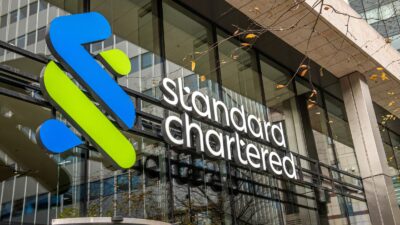Investing in individual stocks from an index such as the FTSE 100 is riskier than investing in the whole index through a simple, low-cost tracker. Furthermore, if you’re not rewarded with higher returns for taking on the higher risk, why bother with individual stocks?
The table below shows total returns (capital + dividends) delivered by Royal Dutch Shell (LSE: RDSB) and by three widely-tracked indexes of which Shell is a constituent.
| 1 year | 5 years (annualised) | 10 years (annualised) | |
| RDSB | -11.0% | +1.1% | +2.9% |
| FTSE 100 | -8.1% | +4.3% | +3.8% |
| FTSE All-Share | -6.8% | +5.2% | +4.4% |
| MSCI World | -0.1% | +8.8% | +6.4% |
As you can see, Shell has delivered rather disappointing returns relative to the indexes over the short term (one year), medium term (five years) and long term (10 years).
Is it time to dump Shell and buy an index tracker instead, or is the oil giant set to put its sub-par record behind it and become an index outperformer in the coming years?
Oil price
The huge slump in the price of oil over the last two years has hit Shell’s earnings and share price. So, of course, this has put quite a dent in the returns delivered by the company shown in the table above.
Shell’s returns actually looked a lot worse just a few months ago, when the oil price hit a multi-year nadir of under $30 a barrel. However, we’ve seen a 50% bounce to around $45 a barrel and a recovery in Shell’s share price from a low of under £13 to £17.50 today.
Earnings
The rebound in Shell’s shares puts the company on a prospective price-to-earnings (P/E) ratio of over 23. This looks a rich valuation given that historically the forward long-term average P/E of the FTSE 100 has been around 14.
The market seems to have taken heart from the recent recovery in the price of oil, and to be anticipating a brighter 2017 for both the oil price and Shell’s earnings. Indeed, analysts have pencilled-in a 75% uplift in the supermajor’s earnings from 2016 to 2017, which would bring the P/E down to under 14.
Shell’s earnings rating seems about fair, but we have to concede that the oil price expectations that underpin the earnings forecasts for 2017 can only be tentative at this stage.
Dividends
The dividend — the other component of shareholder returns — is also subject to some uncertainty. As things stand, we’re looking at a prospective yield of 7.4%, which is well above the yield of the FTSE 100. As such, if the dividend is maintained, Shell could potentially outperform the index even if the company delivers only average earnings growth, or even slightly below average growth.
Shell’s board of directors is naturally very keen to maintain the company’s post-War record of never having cut its dividend. However, good intentions aren’t always enough, as we’ve seen with miner BHP Billiton, a dividend aristocrat until this year, when the payout was slashed. If the oil price were to remain low enough for long enough, Shell could be forced into cutting its dividend — a scenario which at least some analysts see happening.
Opportunity?
Shell is the biggest company of the FTSE 100, its market capitalisation of around £140bn making it £50bn bigger than the index’s second-largest company HSBC. The oil giant accounts for 8% of the Footsie, so its own returns have a relatively sizeable impact on the returns of the index. In light of this and the recent recovery of the shares, I think it would be some achievement for Shell to deliver significantly better returns than the index from here.
In my view, a tracker is a more prudent bet, but there’s no doubt that investors who are prepared to embrace some risk with Shell could potentially be more handsomely rewarded if all goes favourably — particularly with that 7.4% dividend yield.







